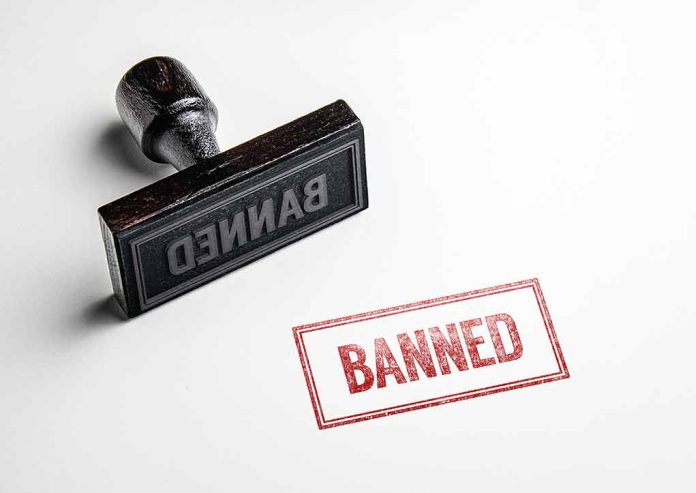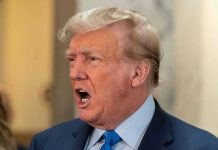
France slams the door on Telegram founder Pavel Durov’s US travel request amid explosive allegations of government censorship against conservative accounts.
Key Takeaways
- French authorities denied Telegram founder Pavel Durov’s request to travel to the US for investment talks, citing the ongoing criminal investigation against him.
- Durov has alleged that France’s DGSE intelligence agency asked him to ban pro-conservative Romanian accounts before elections, which the agency has denied.
- Romanian nationalist politician George Simion, who lost an election, claims foreign interference and wants Durov to testify on his behalf.
- Despite being under judicial supervision, Durov was previously allowed to travel to Dubai in March, making this new restriction more severe.
- The controversy highlights growing tensions between tech platforms and European governments over content moderation and free speech.
French Authorities Tighten Grip on Telegram Founder
French prosecutors have rejected Telegram founder Pavel Durov’s request to travel to the United States for investment discussions, further restricting his movement amid an ongoing legal investigation. The Paris public prosecutor’s office and JUNALCO (National Jurisdiction for the Fight Against Organized Crime) determined that Durov’s proposed business meetings with senior tech figures in the US were “neither urgent nor justified” given his current legal status. This decision marks a significant escalation in France’s handling of the controversial tech executive who has increasingly found himself at odds with European authorities.
Durov was detained in Paris earlier this year as part of an investigation into alleged illegal content on his messaging platform. The charges include complicity in distributing child sexual abuse material, drug trafficking, fraud, and enabling criminal communications on Telegram. While he was initially granted permission to travel to Dubai in March under judicial supervision, this latest denial indicates French authorities are taking a harder line as the investigation continues. The travel restriction comes at a time when Durov has been making efforts to address illegal content concerns on his platform.
Censorship Allegations Inflame Controversy
The situation has grown more complex following Durov’s explosive allegation that France’s intelligence agency, the DGSE, had requested he ban pro-conservative Romanian accounts before that country’s elections. This claim, which has been flatly denied by the DGSE, has added a political dimension to what was already a contentious legal case. The accusation suggests potential government overreach into political speech on digital platforms, a subject that resonates deeply with conservative audiences who have long alleged similar censorship efforts by Western governments against right-leaning voices.
The case has attracted attention from Romanian nationalist politician George Simion, who recently lost an election and has filed complaints with Romania’s constitutional court alleging foreign interference in the electoral process. Simion has expressed interest in having Durov testify on his behalf, and the Telegram founder has indicated willingness to support what he calls “Romanian democracy.” This connection between Durov’s legal troubles and allegations of election interference adds an international relations component to the already complex situation.
Implications for Free Speech and Platform Regulation
This case represents a critical battleground in the ongoing conflict between government control and digital freedom. Telegram has long positioned itself as a champion of privacy and free speech, resisting the kind of content moderation and government cooperation that more mainstream platforms have adopted. Durov’s arrest and the subsequent travel restrictions signal European authorities’ determination to bring even resistant platforms under their regulatory framework, particularly regarding illegal content. For conservatives who value free speech and minimal government oversight, the treatment of Durov raises concerning questions about state power.
The French government’s actions against Durov come amid increasing European regulation of digital platforms through mechanisms like the Digital Services Act. While addressing genuine criminal activity online is necessary, the expansion of government authority over digital communications platforms represents a potential threat to free expression. The allegations of political censorship, if true, would confirm what many conservatives have long suspected: that government regulation of online speech often has partisan political motivations beyond the stated public safety concerns.
What Comes Next for Durov and Telegram
As Pavel Durov remains under judicial supervision in France, the outcome of this case will likely have significant implications for the future of Telegram and possibly for other platforms that prioritize privacy and minimal content moderation. Durov faces a difficult balancing act: addressing legitimate concerns about illegal content while preserving Telegram’s identity as a haven for free expression. Meanwhile, his lawyer has declined to comment on the travel denial, leaving observers to speculate about the defense strategy as the investigation continues.
For users of Telegram and advocates of digital freedom, the French government’s treatment of Durov represents a troubling precedent. If European authorities can effectively hold platform founders personally responsible for user content, it could fundamentally alter how communication platforms operate globally. The potential chilling effect on free speech platforms could ultimately reduce online spaces where conservative viewpoints can be freely expressed without corporate or government censorship – a concerning prospect for those who value unfettered political discourse in the digital age.



